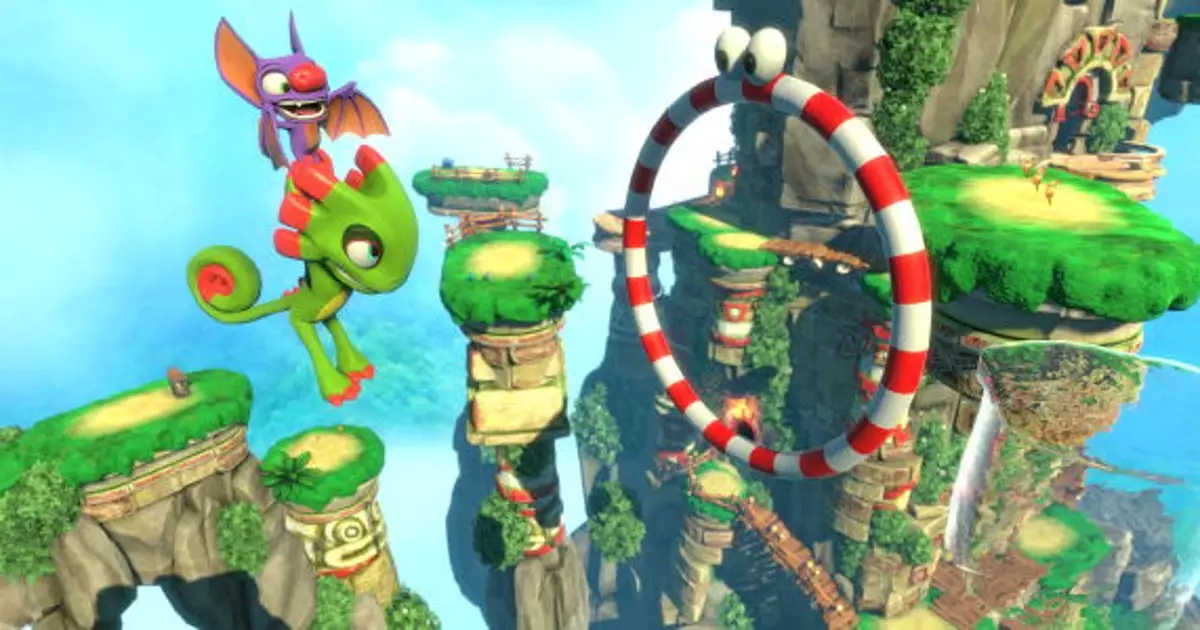In a striking announcement that reverberated through the gaming community, Playtonic Games has revealed a wave of layoffs affecting various departments within their company. This decision comes amid what they characterize as “a period of profound change” in the gaming landscape, yet they leave many questions unanswered about the specific challenges prompting such a drastic measure. The implications of the gaming industry’s evolving nature are manifold, influencing not only the operations of established studios like Playtonic but also the entire ecosystem of artists, developers, and creative professionals dependent on it.
While Playtonic did not clarify the exact nature of these transformations, the landscape is undoubtedly shifting beneath our feet. A combination of soaring development budgets, rising competition from evergreen service games, and fading interest in traditional genres like mascot platformers could all play a role. The question remains, however: how do we reconcile the nostalgia-driven success of studios like Playtonic with the exigences of a modern gaming audience?
Impact of Layoffs on Creative Talent
In Playtonic’s carefully worded statement, they emphasized that these layoffs reflect neither the talent nor dedication of the individuals affected but rather a response to evolving market dynamics. It’s devastating news for the creative minds behind beloved characters and immersive worlds. These artists, designers, and storytellers have infused each project with their passion and originality, crafting experiences that resonate with audiences.
The brand manager, Anni Valkama, has taken the commendable step of actively promoting the talents of her departing colleagues on professional platforms like LinkedIn. By underscoring their skills and urging potential employers to consider them, Valkama is not only showcasing her team’s creativity but also addressing an essential reality: the industry thrives on talent, and losing such individuals hampers future innovation.
Unfortunately, the reality of layoffs is that they highlight a crucial disparity in the industry’s expectations versus its financial realities. Despite successful titles that have garnered acclaim, the profits do not always follow. It raises the troubling issue of how the market measures success—not just in terms of sales, but in its willingness to invest in creative endeavors.
The Shifting Landscape of Game Development
The recent turmoil seems indicative of a larger trend as developers explore different avenues of financial sustainability. In an era where streaming services and mobile platforms dominate, the traditional model of selling games at a one-time price is being upended. The success of games that evolve continuously, drawing players back for seasons of new content, raises critical questions about the long-term viability of strictly narrative-driven experiences.
Playtonic is not the only studio feeling the strain. Major players in the industry, such as Microsoft and Take-Two Interactive, have also faced the difficult choice of scaling back operations amid shifting market demands. While Playtonic’s approach is nuanced in its communication—favoring empathy and transparency—it does starkly contrast with more blunt strategies employed by larger corporations that reduce workforces without much explanation.
During a pandemic-induced gaming boom, companies aggressively expanded to meet increased demand. Yet, as players return to life outside of their homes, the industry is now left grappling with over-saturation and declining engagement. This has culminated in a complicated ballet of layoffs, mergers, and strategic re-evaluations, leaving studios like Playtonic struggling to navigate these choppy waters.
Looking Toward the Future
While the phrase “profound change” suggests that Playtonic is poised for a significant evolution, one wonders whether it heralds a reimagining of their development strategy or a shift in personnel and creative focus. Given their heritage of innovation and playful whimsy, there is a glimmer of hope that the underlying essence of what made the studio beloved can be harnessed in new ways as they adapt to contemporary challenges.
As uncertainty continues to loom, it’s imperative for studios like Playtonic to engage in honest dialogues about their vision and showcase their efforts to secure a sustainable future for both their projects and the talented individuals behind them. Rather than merely marking a downturn, this moment could potentially lead to a rebirth, one where adaptability and creativity intertwine to reinvigorate the platforming genre that so many hold dear.
Innovation often springs from adversity, and perhaps it is in these times of turmoil that the seeds of groundbreaking ideas are sown. The gaming community eagerly awaits the path that Playtonic will unveil.

